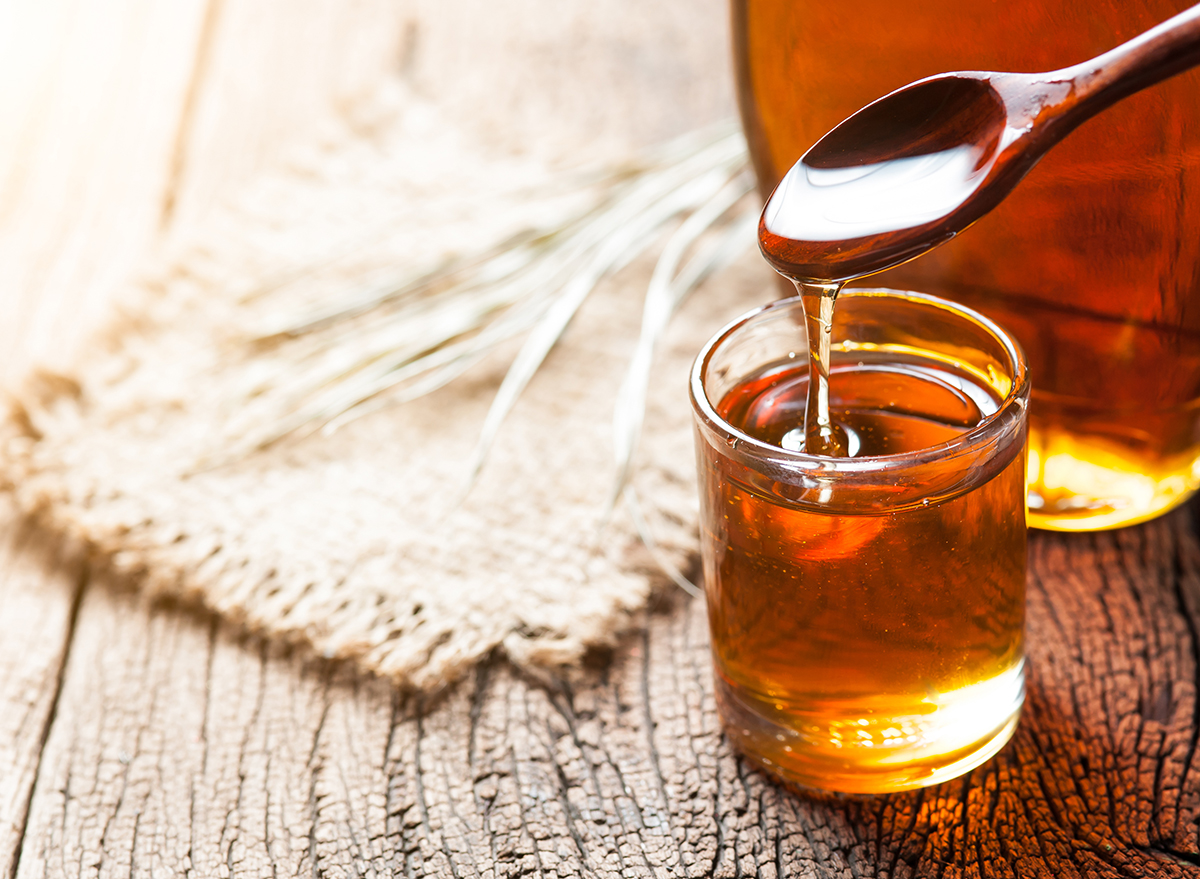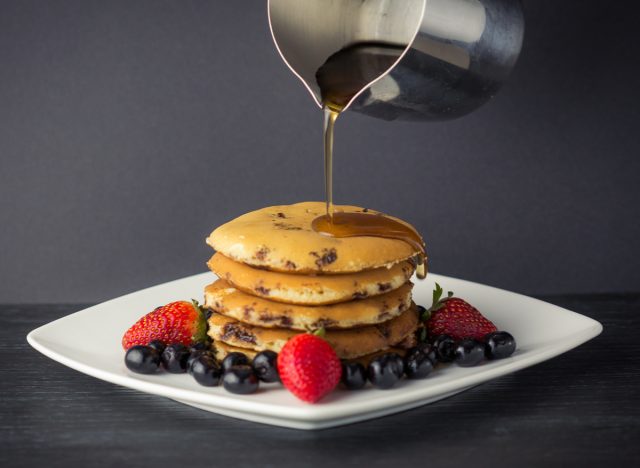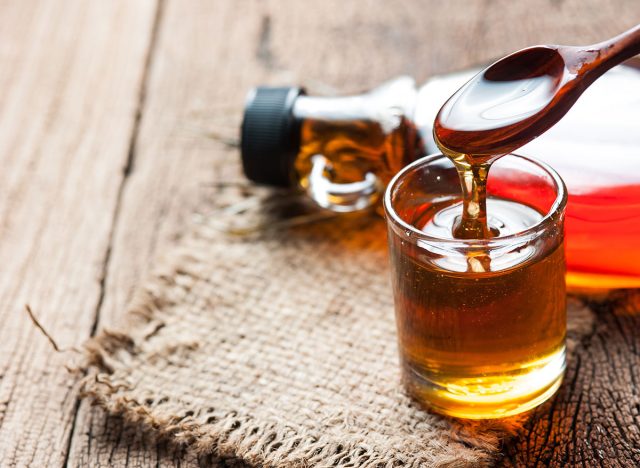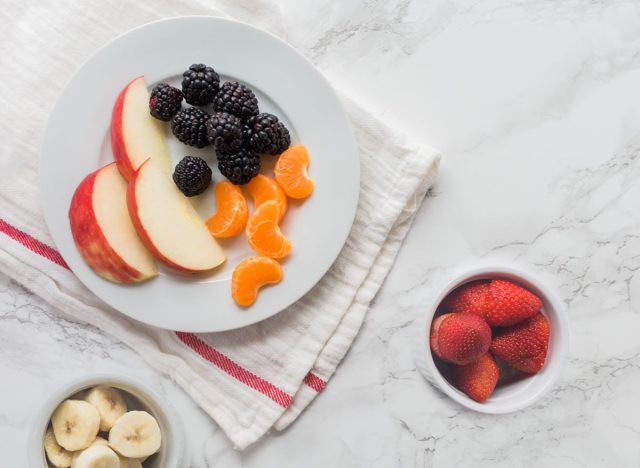4 Surprising Side Effects of Maple Syrup, Says Dietitian

Maple syrup is a staple condiment that you can put on waffles and pancakes as well as use as a sweetener for yogurt and overnight oats, among other things. Although it can get sticky and messy, its sweetness makes it a favorite household food.
Unlike pancake syrup, which is made with a base of high fructose corn syrup, pure maple syrup is made by concentrating the slightly sweet sap of a maple tree that has a nutrient profile vastly different than highly processed sweeteners. We spoke with Molly Hembree, MS, RD, LD to discuss all the side effects of eating maple syrup. After you read on, be sure to check out 7 Underrated Condiments That Should Always Be In Your Pantry.
You may increase your calorie intake.

According to Hembree, consuming maple syrup may increase your calorie intake by about the same amount as any other sweetener.
"Maple syrup provides 4 calories per gram like table sugar, agave nectar, corn syrup, honey, or molasses," says Hembree. "These calories do very little to benefit our health."
Consuming too much sugar can have side effects that include an increase in calorie intake, more sugar cravings, and weight gain.
You may increase your manganese intake.

Manganese is a trace mineral that is found mostly in bones, the liver, kidneys, and the pancreas.
"Manganese is an essential trace element in the diet that helps with the activity of enzymes in the body and bone formation," explains Hembree.
Hembree further states that two tablespoons of maple syrup have about 1.16 milligrams of manganese, which is about half of daily manganese adequate intake (AI) recommendations, according to USDA's FoodData Central database.
You may increase your risk of chronic disease if eaten in excess.

According to Hembree, too much added sugar in your diet may crowd out wholesome food choices like lean proteins, whole grains, fruits, and vegetables.
If this does happen, it may leave you with less protection against chronic diseases like diabetes, heart disease, stroke, chronic kidney disease, and cancer.
You may forget to have fruit on your plate.

If you need something sweet, don't forget about the natural sweetness of healthy fruits.
"Maple syrup is a sweetener, but fruits themselves are naturally sweet and provide nutrients like vitamins, minerals, and fiber," says Hembree. "An overhaul of maple syrup may be so sweet you don't reach for an ample amount of fruit towards your meal or snack."









